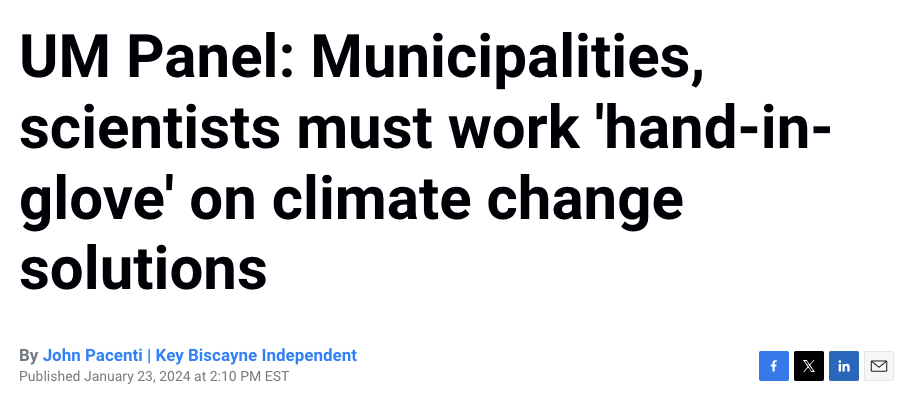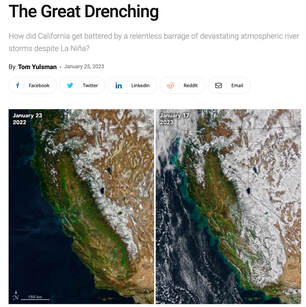News
2025
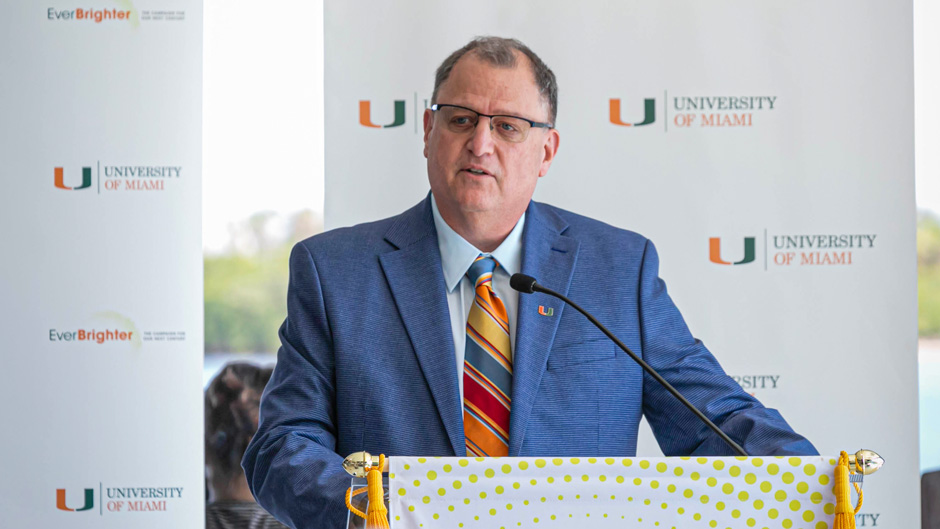
Ben began his time at the Rosenstiel School back in 2007, and has since helped shape the careers of many scientists while contributing greatly to the weather and climate field. In August, Ben became the new dean of the Rosenstiel School. He succeeds Roni Avissar, who has served in that post since 2009. Congratulations, Ben! For more information on this, click on the image to read the full article!
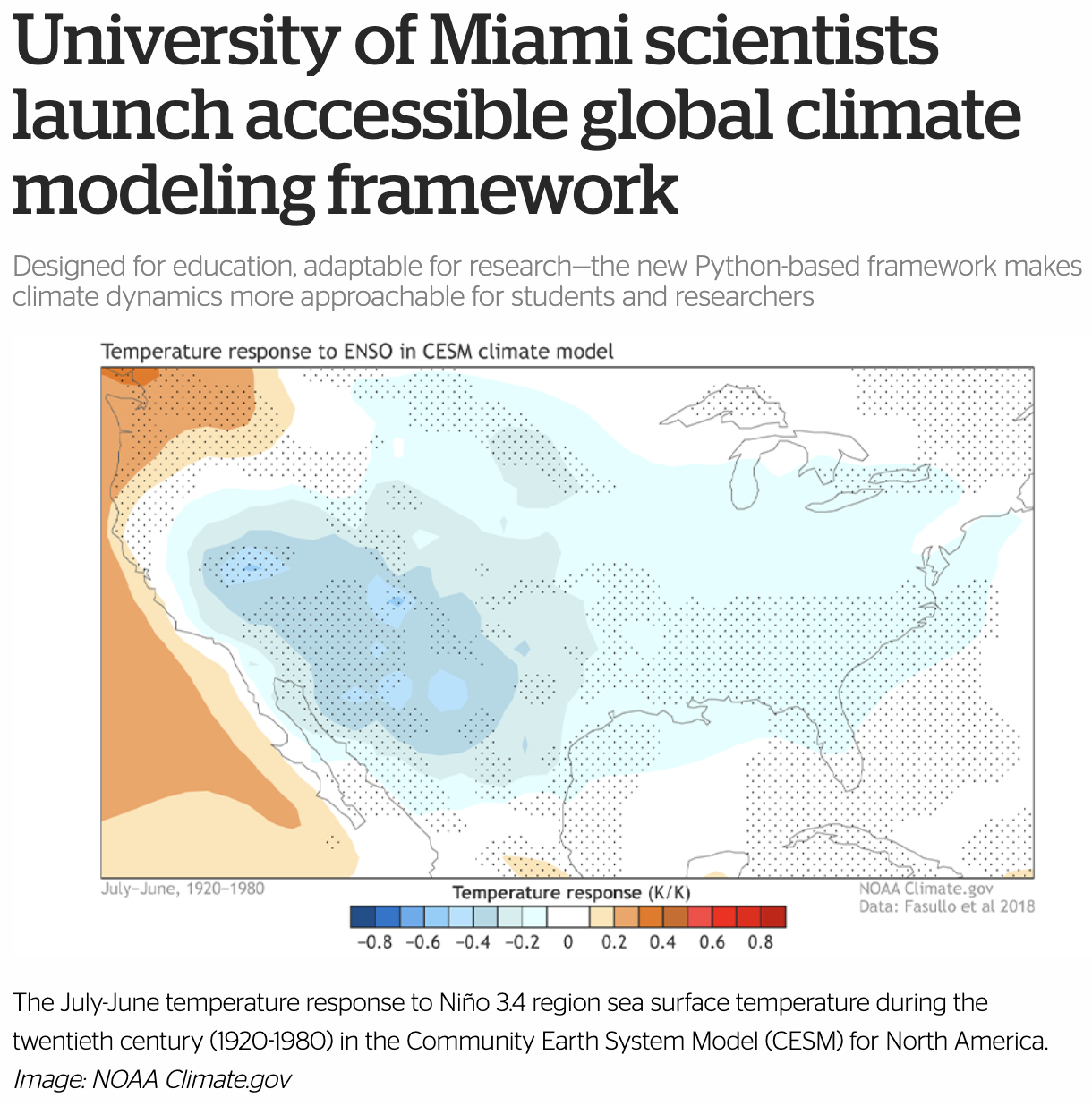
Kirtman group members worked together to develop a global atmospheric modeling framework that blends powerful research capabilities with accessibility for students and scientists alike. Written entirely in Python, a high-level, general-purpose programming language, and designed to run on an interactive Jupyter Notebook, allowing anyone with a standard laptop to explore cutting-edge climate experiments. To access the article, click on the image.
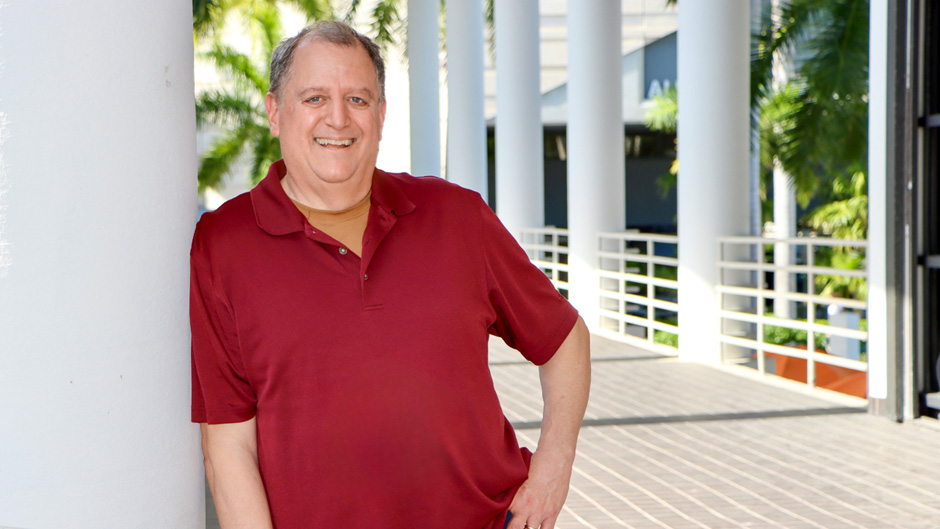
Ben received the Distinguished Faculty Scholar Award on Monday, March 31, during the Faculty Senate Awards Ceremony. The Distinguished Faculty Scholar Award recognizes either a single outstanding scholarly achievement or a lifetime of distinguished accomplishment in any area of research or creative activity. Award winners are nominated by faculty of the University and are selected by a committee. Congratulations, Ben!
2024

Ben spoke to members of the Institute of the Mathematical Sciences of the Americas at the University of Miami about how AI/ML is (Potentially) Revolutionizing Weather and Climate Science. This talk was specifically held during the AI and Pure Mathematics Conference. If you'd like to watch the talk, the recording is available by clicking on the photo.
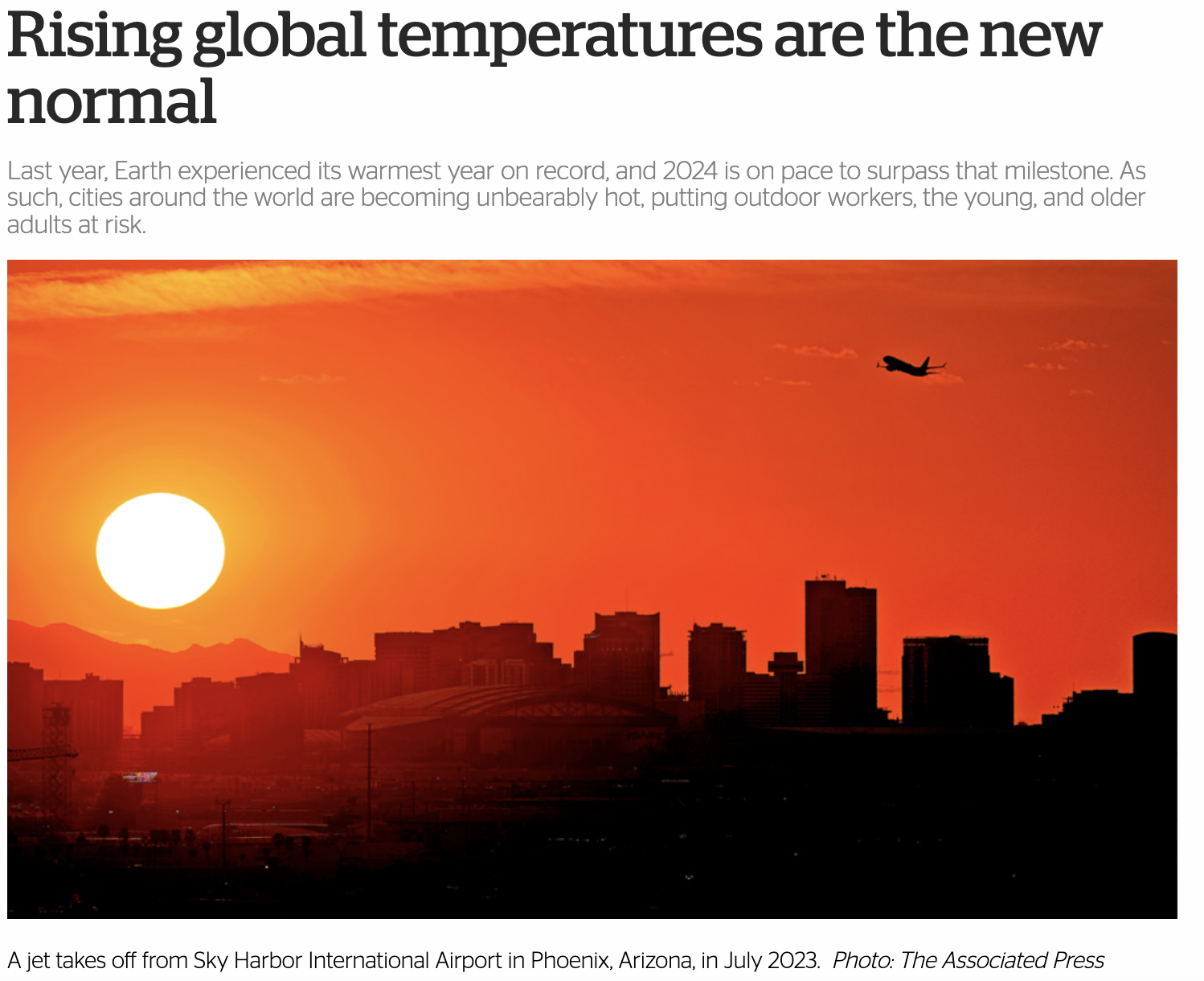
Ben discusses rising global temperatures, specifically because last year, Earth experienced its warmest year on record. To read the article with many quotes from Ben, you can click on the image.
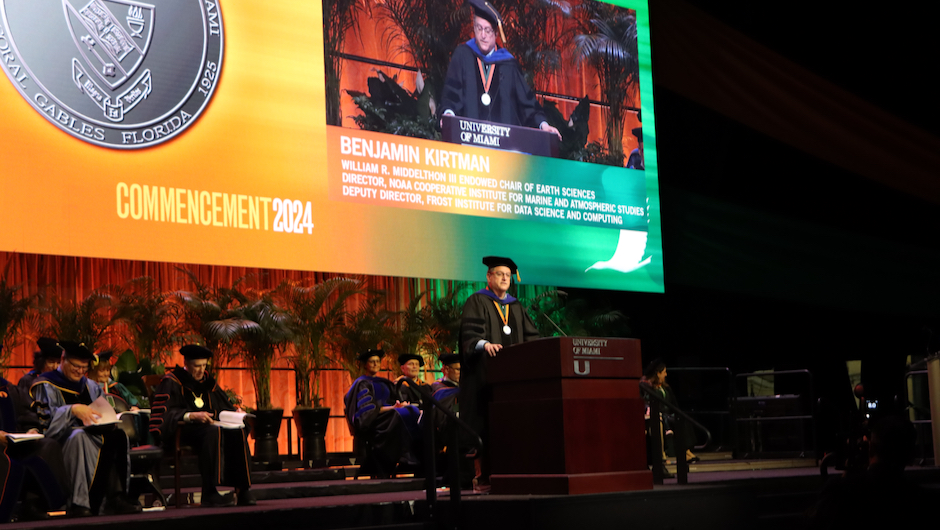
At the University of Miami's 2024 Commencement, Ben delivered his first commencement address. He stressed that graduate students' preserverance and ability to show compassion will help guide their future carreers. To read more about the event and to see photos click on the image!
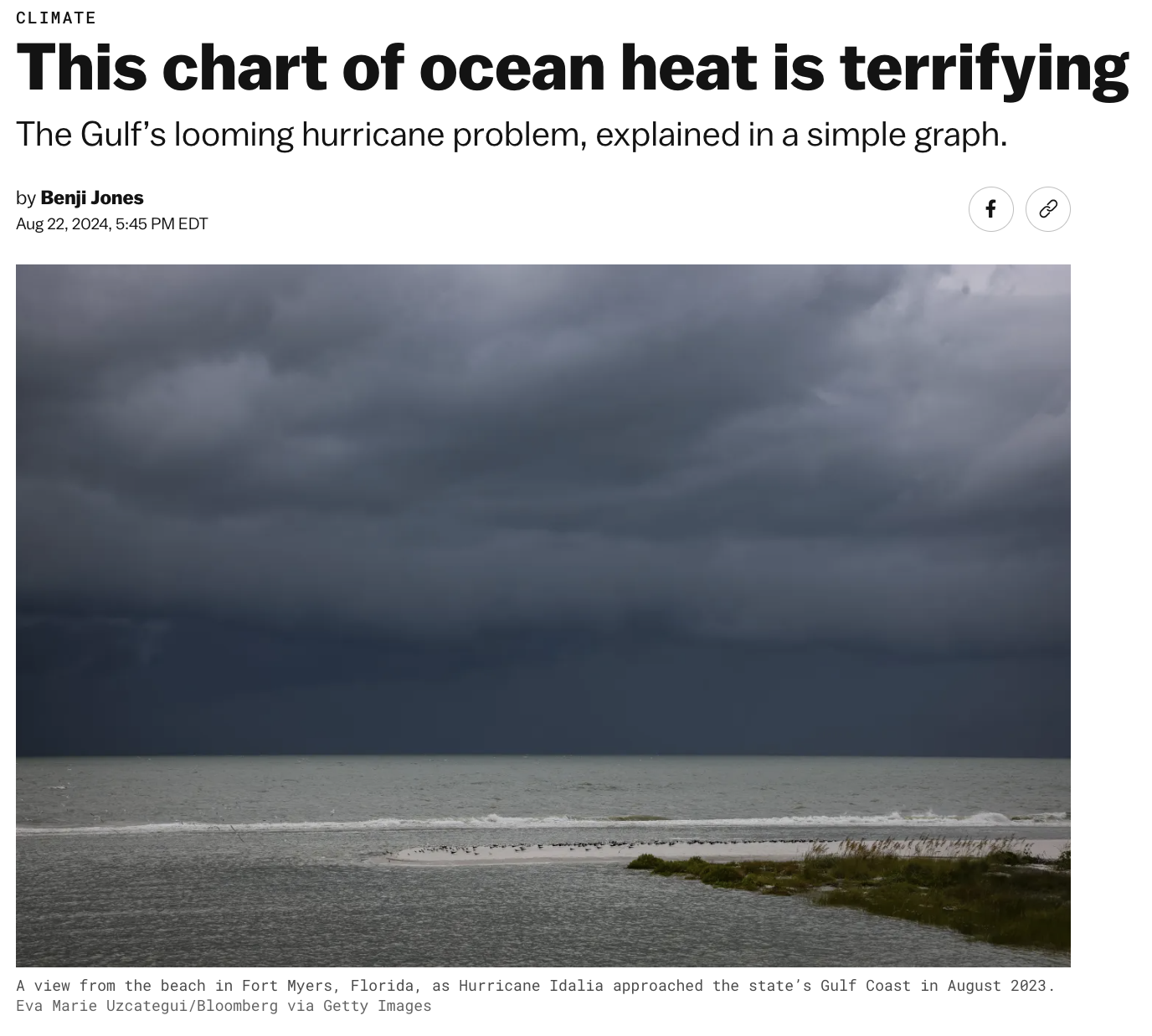
Ben was interviewed regarding the warm waters along the Gulf Coast and the impact of that on the 2024 Hurricane season. He talks about the complexities of water temperature and its impact on hurricane intensity and development. To read the article, click on the image.
2023
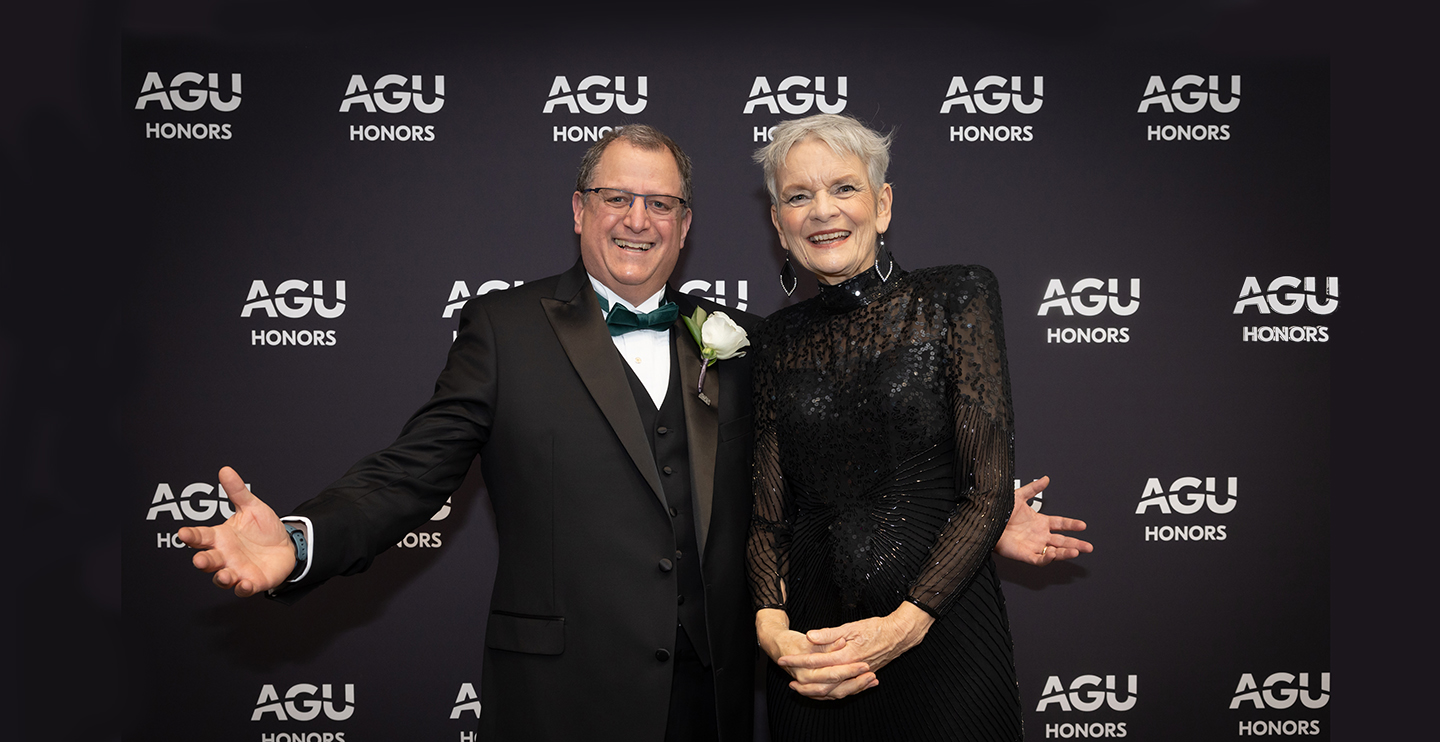
Ben was named a 2023 Fellow of the American Geophysical Union! Ben is pictured above with 2023-24 AGU President Dr. Lisa Graumlich. He was honored at the AGU meeting in San Francisco along with 62 other recipients of the honor. To read more about the honor, please click on the image. Congratulations, Ben!
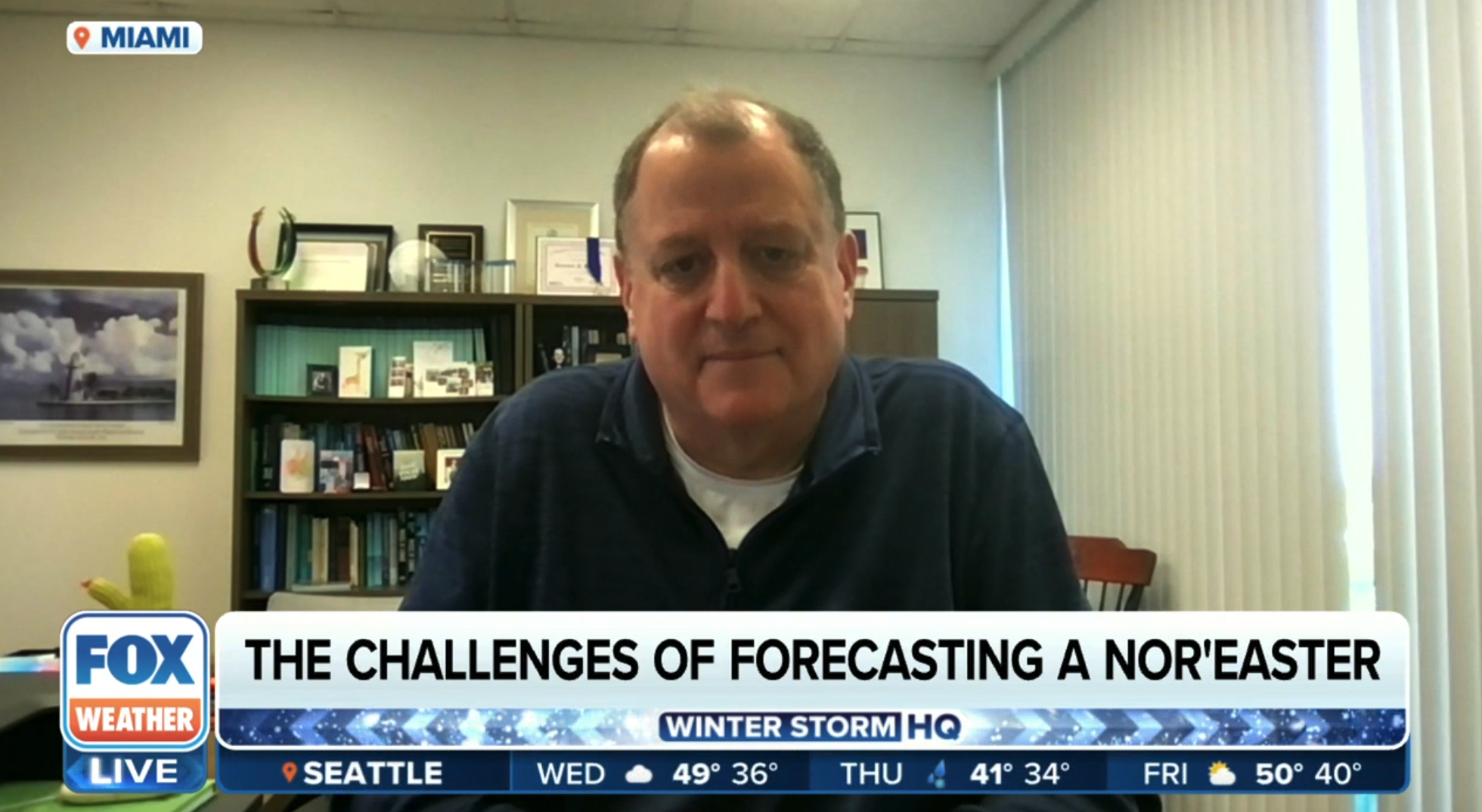
Ben discussed the challenges of snowfall forecasts on Fox Weather. Ben explained what goes into forecasting snow totals for a major snowstorm and why a nor'easter can be particularly challenging. To watch the interview, click on the image.

Ben discussed the ongoing heatwaves and rising ocean temperatures on CNN, and what the impact is on society. To view the interview, click on the image.
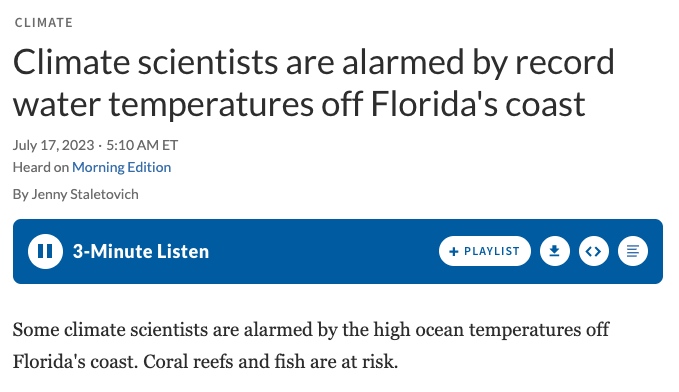
Ben was on NPR (Morning Edition) discussing the alarming water temperatures off Florida’s coast. To listen to the interview, or read the transcript, please click the image.

Ben discussed how El Niño influences extreme global temperatures impacting the tropics on FOX Weather. To listen to the interview, please click the image.
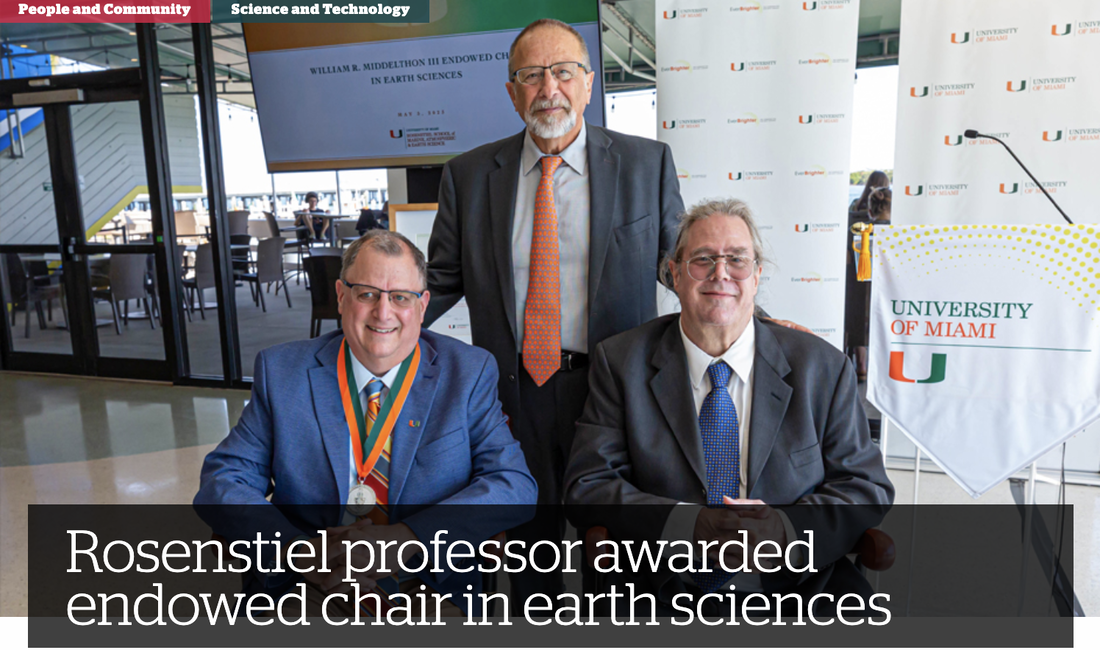
Ben was named the William R. Middelthon III Endowed Chair in Earth Sciences to support research on disaster preparedness and climate variability. Ben was honored during a ceremony, held by the University, on May 3rd. To read more about the award, and to watch a video put together by the University, please click the image.
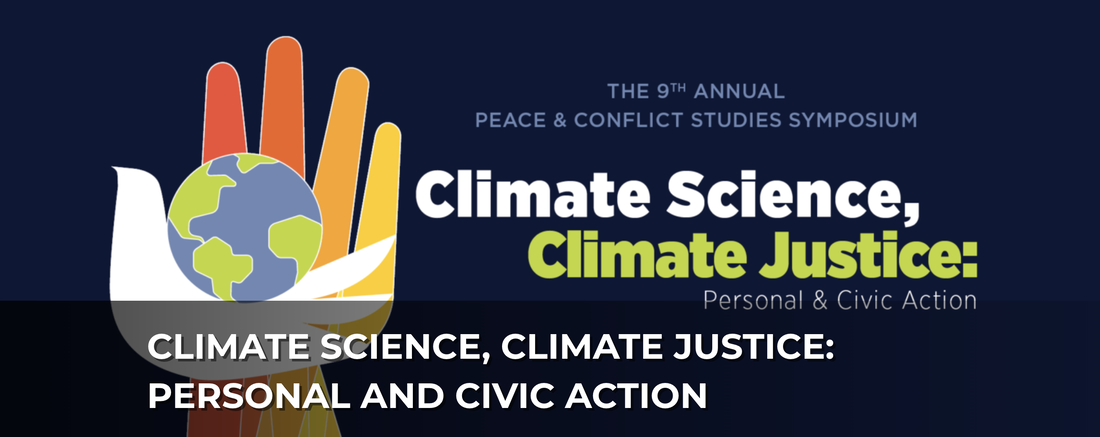
Ben gave a talk on: Understanding Climate Change Science from Days-to-Decades, Global Societal Implications and How Local Community Values Inform Adaptation Science for the Austin Community College 9th Annual Peace & Conflict Studies Symposium. To watch the talk, please click on the image!
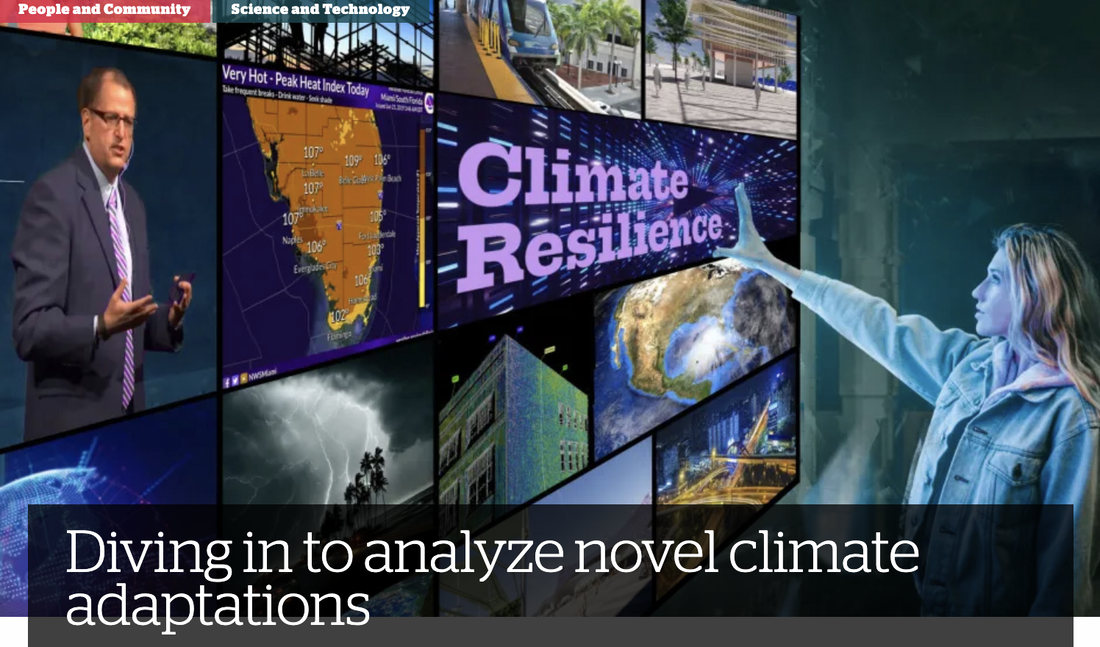
Ben was a Keynote Speaker at the 6th annual Smart Cities Miami conference in March. To learn more about the event, click on the image.
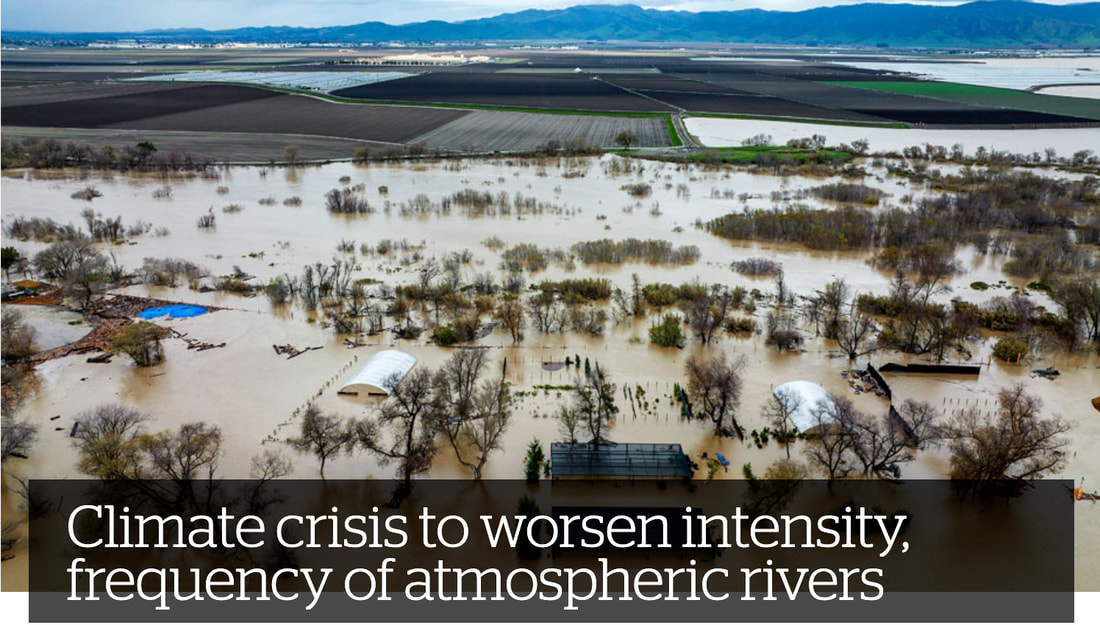
Ben and Breanna were interviewed for an article on how the climate crisis will worsen intensity and frequency of atmospheric rivers. In January, California experienced incredible rainfall which lead to the expanded coverage on atmospheric rivers. To read the article click on the image.
2022

Marybeth and Breanna recently guest authored a post for NOAA's ENSO blog. The focus of the blog post is teleconnections and how to understand Earth's climate patterns through teleconnections. To read the blog post, click on the image.

Leo and Ben contributed to a paper focusing on the role of ocean and atmosphere variability in scale-dependent thermodynamic air-sea interactions. This paper was highlighted in an article focusing on how spatial scale shapes the ocean and atmosphere's influence on the climate. The article outlines some of the studies most important findings. To read the article, click on the image.
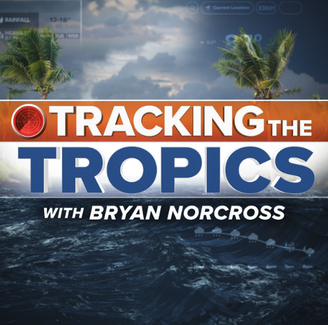
Ben was recently a guest on the Tracking the Tropics podcast with Bryan Norcross. They discussed some of the research Ben is doing in understanding how the oceans and the atmosphere interact as one system, how El Niño and La Niña conditions affect the global circulation, how far in advance big weather events can be predicted, and much more. To listen to the podcast, you can click the image or listen on your preferred podcast streaming service.

The July 2022 Europe heat wave created a large discussion of the future of infrastructure and human health as heat waves become more common with climate change. Ben discussed the atmospheric components of the Europe heat wave and the factors that came together leading to a record-breaking heat wave. To read the full article, click on the image.
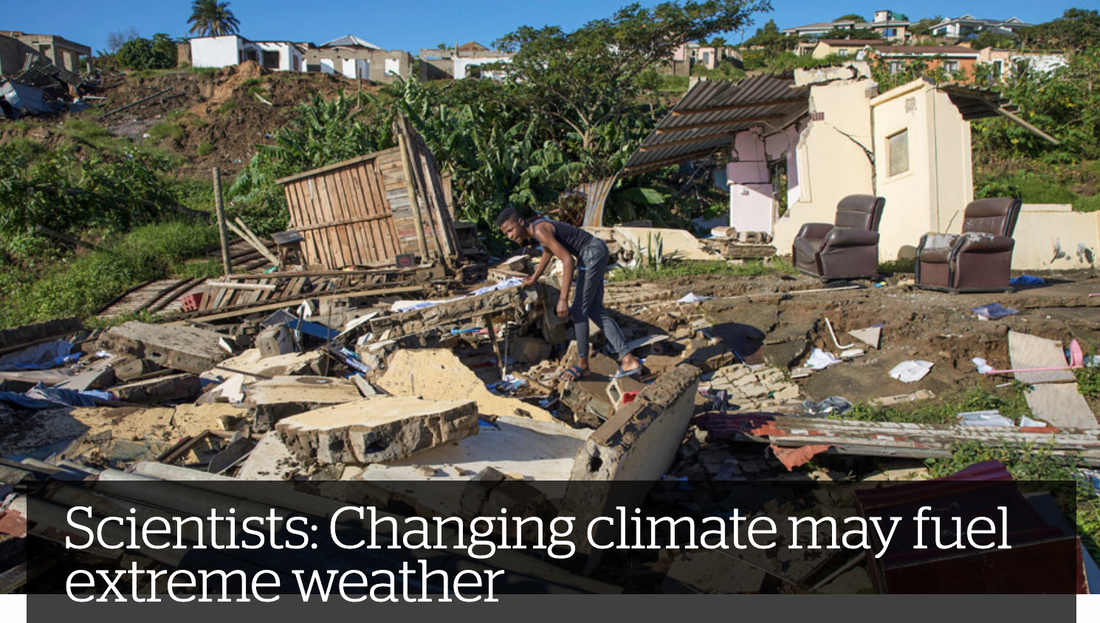
As the climate continues to change, Ben discussed what people should expect in terms of extreme weather events, globally. He also gave suggestions on things people can do in the immediate future to help alleviate the impacts of extreme weather events. To read the article, click on the image.
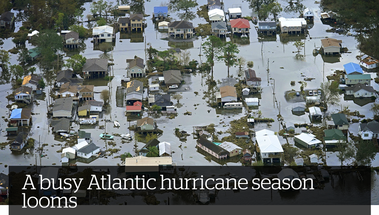
Ben spoke about the ongoing La Niña in an article focusing on the 2022 Atlantic hurricane season. He discussed how the phenomenon can impact hurricane activity in the Atlantic. To read the article, click on the image.
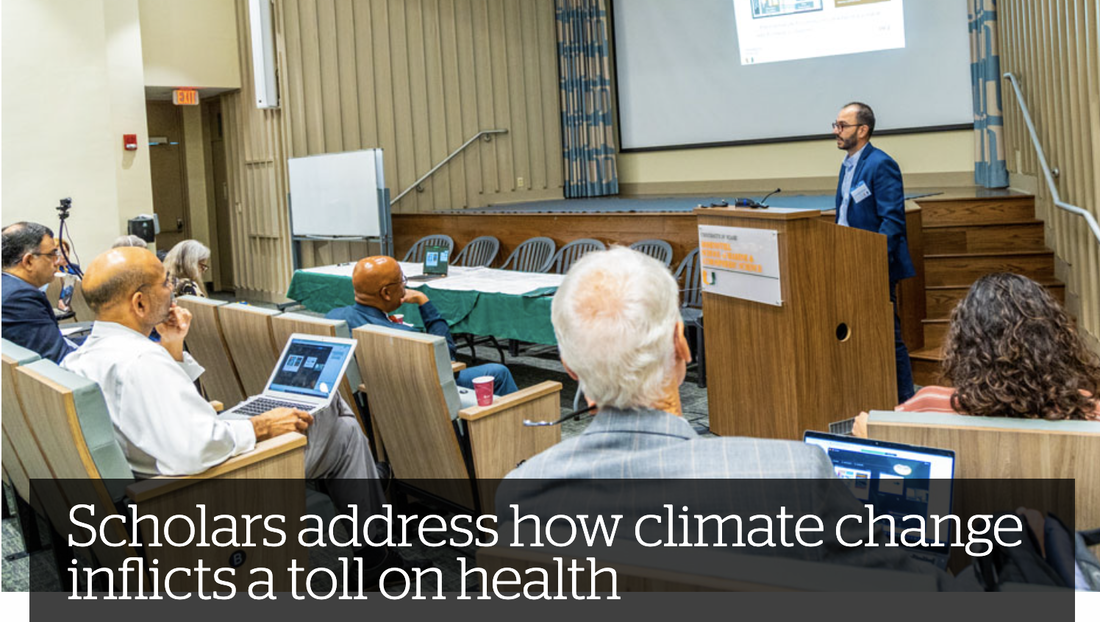
At a day long symposium addressing how climate change inflicts a toll on health, Ben described two of the long-range forecasting tools he helped develop and how they can be used to aid emergency managers and health care teams in planning for potential disease outbreaks that can result from extreme weather. To read the full article, you can click on the image.
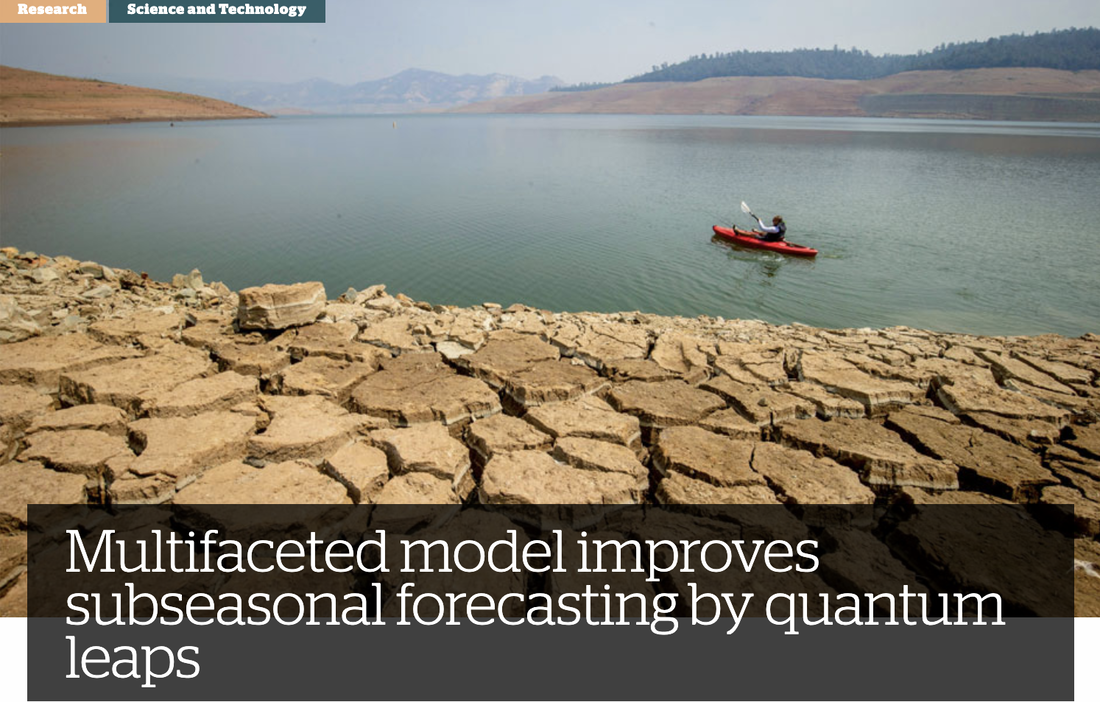
Ben discussed the use of the North American Multi-Model Ensemble (NMME) and how it has helped policymakers and emergency managers prepare for natural hazards like heat waves, wildfires, or the next polar vortex. Click the image to read the article.
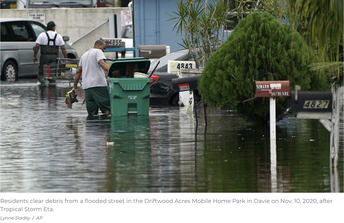
Ben spoke with WJCT News about the risks Florida faces, such as: sea level rise fueled by melting ice and warmer ocean temperatures and hotter overnight temperatures, which require higher electricity demand to power air conditioning. Click on the image to read the article and hear the audio interview.
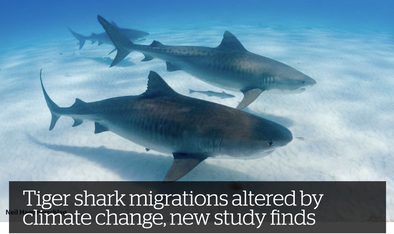
A new study led by scientists at the University of Miami (UM) Rosenstiel School of Marine and Atmospheric Science revealed that the locations and timing of tiger shark movement in the western North Atlantic Ocean have changed from rising ocean temperatures. These climate-driven changes have subsequently shifted tiger shark movements outside of protected areas, leaving the sharks more vulnerable to commercial fishing. Ben is an author on the research publication. Click the image to read the news article.
2021

At the end of October, Ben shared his thoughts on atmospheric rivers and how they coincide with climate patterns. This article is in a Q&A format and has some really great information regarding atmospheric rivers, their role in the climate system and the research currently being conducted to understand more. Click on the image to read the article!
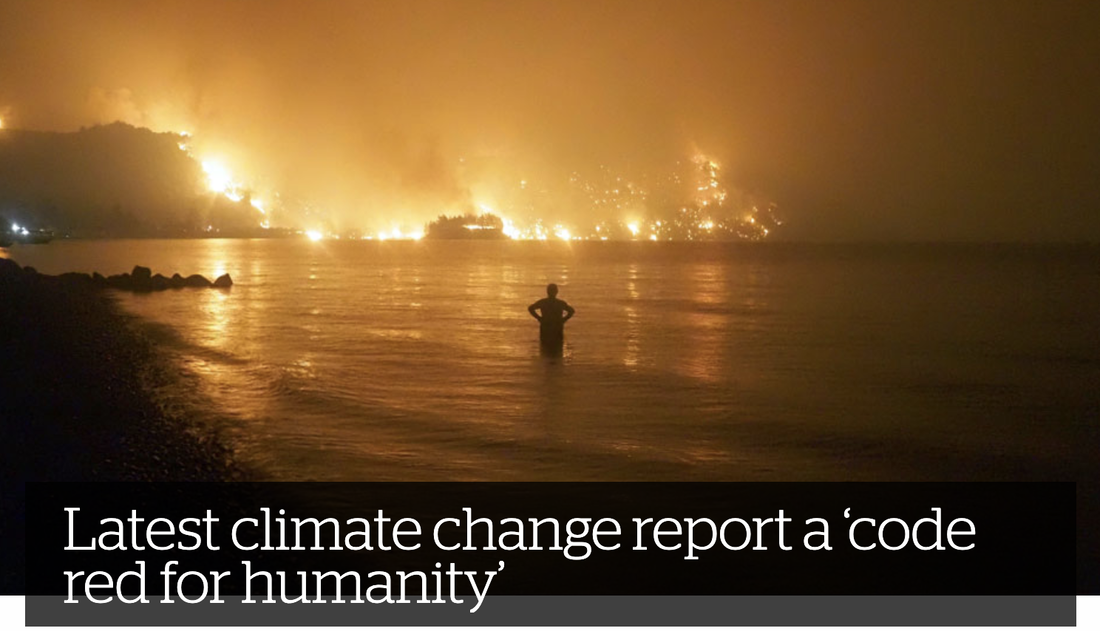
The latest update from the United Nations’ Intergovernmental Panel on Climate Change (IPCC) Sixth Assessment report warns that Earth is warming at a rate faster than previously thought. The window to prevent the most catastrophic impacts of climate change from occurring is rapidly closing. Ben discussed the new updates and he noted that the report highlights studies that demonstrate how extreme events such as heat waves, cold spells, floods, and droughts are influenced by human activity. To read the full article that also features quotes and insight from other RSMAS Professors and Researchers, please click on the image!

The 2021 Atlantic hurricane season will be underway on June 1st. This article highlights some of what hurricane specialists are expecting to see this year as well as what societal impacts are possible due to the COVID-19 pandemic. Ben discusses the possibility of an above average hurricane season, but not quite as strong as last year's season. The article also touches upon the advances in satellite data that NASA is working to bring to scientists to help aid in climate research. Ben spoke about how the advances from NASA will be beneficial for the climate community and he discussed how SubX will help develop better forecasts in the future.
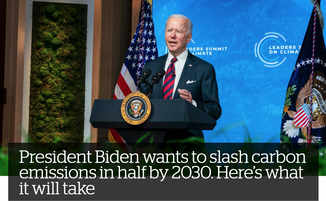
This article highlights the viewpoints of University of Miami experts in environmental law, atmospheric science, and sustainability on how President Biden’s ambitious climate plan could succeed. Ben briefly spoke about different ways to slash carbon emissions, specifically focusing on the future of electric vehicles.
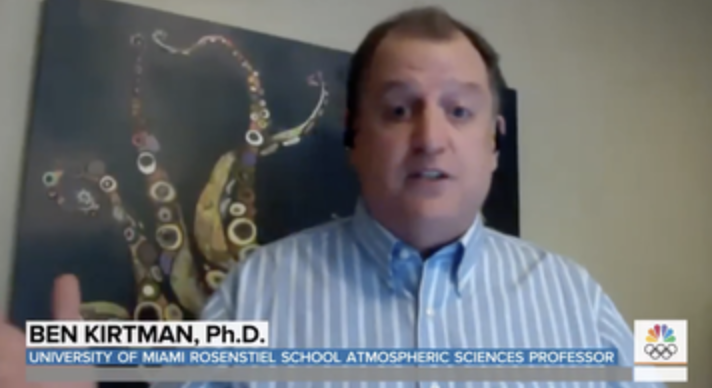
During the month of April, the TODAY show focused many of their segments on the issues tied to the environment, the climate and some changes that people can make in their every day lives that will help mitigate the issues the Earth faces. Ben was interviewed by Kerry Sanders, who kicked off NBC's special series: TODAY Goes Green. To check out the video, click on the image!
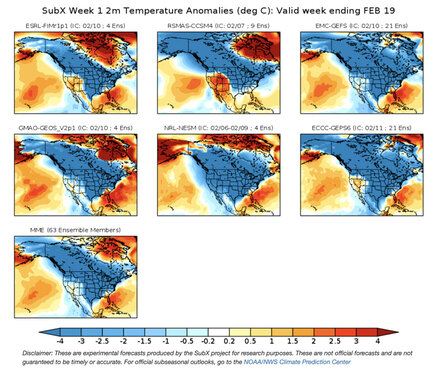
Ben Kirtman, a professor of atmospheric sciences, is the primary architect of the multi-model Subseasonal Experiment, or SubX, which forecast a breakdown of the polar vortex that led to frigid temperatures in Texas and other states. According to Kirtman, a probabilistic forecast is needed in climate and weather prediction. “You want to include the chance that you might be wrong, and the best way to explore a realistic assessment of the range of possible outcomes is to use this multi-model/multi-ensemble approach,” he said.
2020

In their first Climate Café, RSAMS faculty members and students detailed some of the effects of climate change in 2020. The article outlines the first climate café and all of the important topics covered. Graduate student Marybeth Arcodia introduced many of the graduate and undergraduate student research. Following her presentation, Ben Kirtman began an insightful presentation into climate change during the age of COVID. A question and answer session concluded the session, and many were able to ask their questions to professors and students. There will be a second and third part of the Climate Café Series. Click on the image to watch!
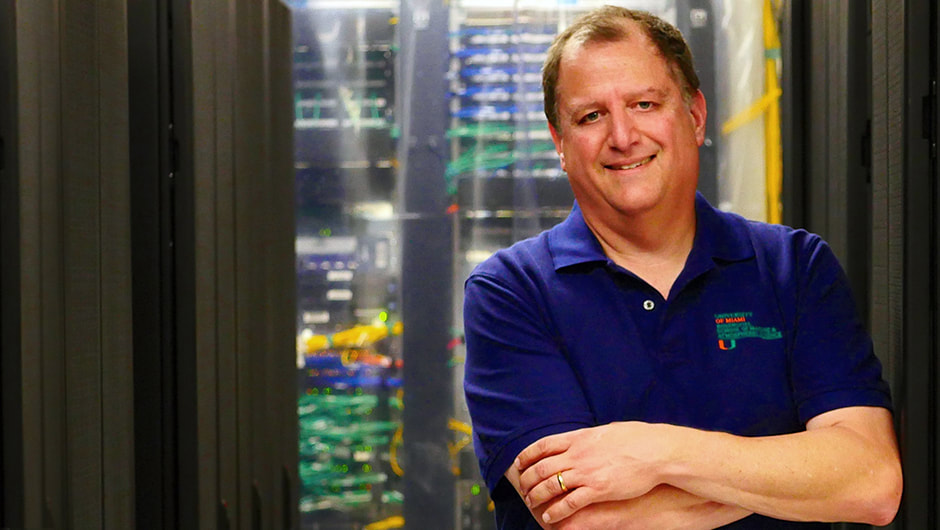
In his role as IDSC deputy director, Kirtman’s first job is to find innovative thinkers and interdisciplinarians with knowledge of the nuances of using all kinds of data science techniques to advance disciplinary research. “There are some universities that are going to really be setting the bar in terms of developing new data science technology. They have huge resources, and they’re going to be developing the next data science algorithms. We’re not going to try to compete with them, but we are going to use their technology to advance disciplinary science,” Kirtman explained.
